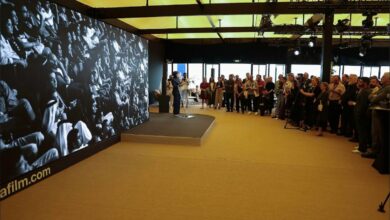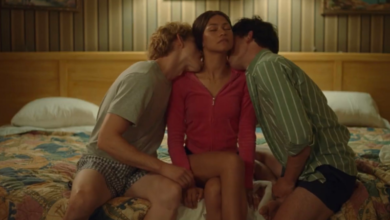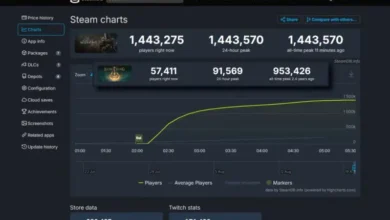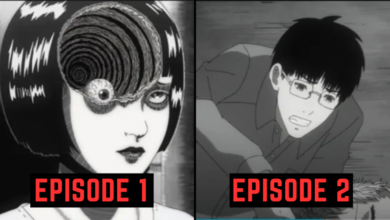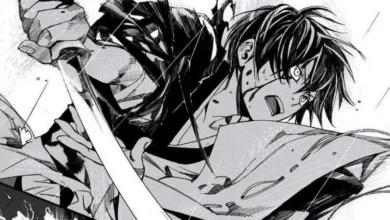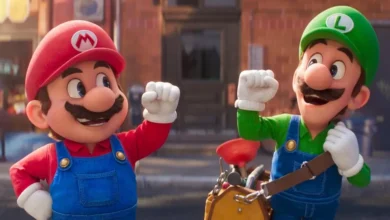Yvette Fielding says she was bullied on Blue Peter

TV presenter Yvette Fielding, who made headlines as the youngest-ever host of Blue Peter, has claimed she was bullied while making the show, and almost quit.
The host, who was 18 when she joined the BBC kids’ TV show, said she was “pushed to the limit” by behaviour that left her a “shaking, gibbering wreck.”
She added that if a young presenter today faced similar conditions “there’d be quite a few implications to that”.
The BBC said it would not be commenting on her allegations.
Fielding joined Blue Peter in 1987, moving from Stockport to London and leaving her family behind.
“I felt very lonely because I was the youngest. I was considered a kid – and a pain in the arse of a kid,” she told the podcast Celebrity Catch-Up: Life After That Thing I Did.
“I wasn’t given any training. I wasn’t told how to present, I wasn’t given any tips. I was basically left on my own, to just get on with it. And it wasn’t a pleasant first year.
“I would ring my mum up and then hear my mum’s voice and burst into tears, because I was so homesick.”
The presenter claimed most of her mistreatment stemmed from Blue Peter’s notorious editor Biddy Baxter, who helmed the show for 25 years from 1962 until her retirement in 1988.
Fielding characterised Baxter as “incredibly cruel”, saying she was constantly criticised for her presenting style.
“I was told that I was useless, absolutely useless, again and again and again and again,” she told interviewer Genevieve Hassan.
“Every time I did what I thought was right, she’d come back and she’d say something awful or she’d just berate me in front of other people. And it was just absolutely soul destroying.
“It was like being beaten by a parent”.
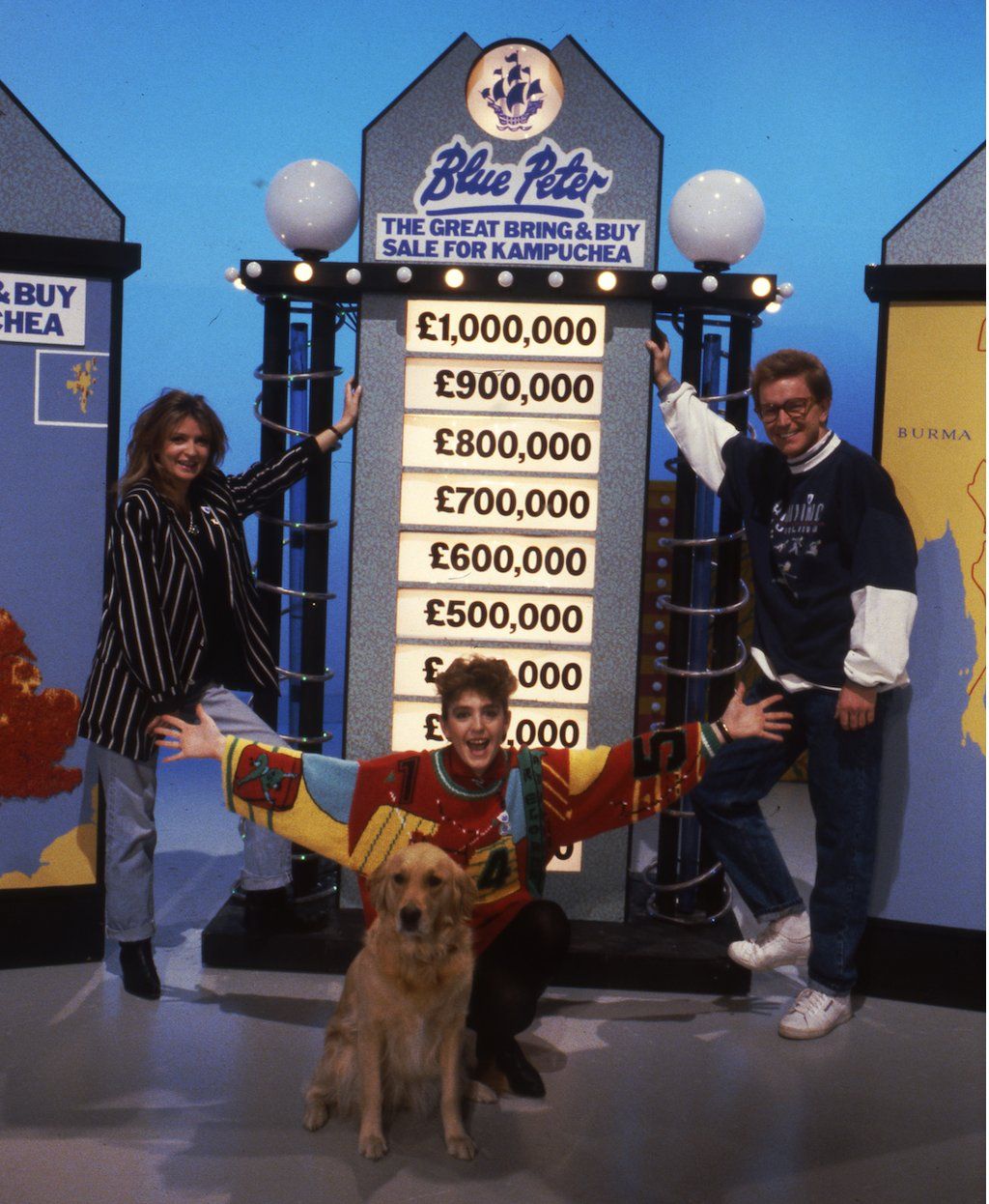
Fielding also recounted how producers gave her a strict curfew of 9pm and would phone every night to make sure she had gone to bed.
She also claimed that Baxter forced her to show viewers the effects of her skin condition, vitiligo – which causes patches of skin to lose their pigment or colour – against her will.
“I had no say in the matter. It was ‘You will go on television and you will pull your skirt up, show your legs, show where your vitiligo….’
“I mean, I was mortified, absolutely mortified.”
By the end of her first year on the programme, Fielding had decided to quit.
“I actually resigned and walked out because I found it really hard going. I’d been pushed to the absolute limit and I was ready to get in my car and drive back home to Cheshire,” she said.
“I’d just had enough of being bullied, which is what it was.”
Eventually, however, she was convinced to stay; and Baxter retired later that year. After that, Fielding said, her remaining four years on Blue Peter were “an absolute blast”.
Her description of working with Baxter mirrors claims by some other former presenters.
“We were like school children, kept in our place, reprimanded if we were naughty,” Valerie Singleton told Baxter’s biographer, Richard Marson, in a book published earlier this year.
Peter Purves agreed: “It was always criticism rather than praise. Biddy riled me to bits.”
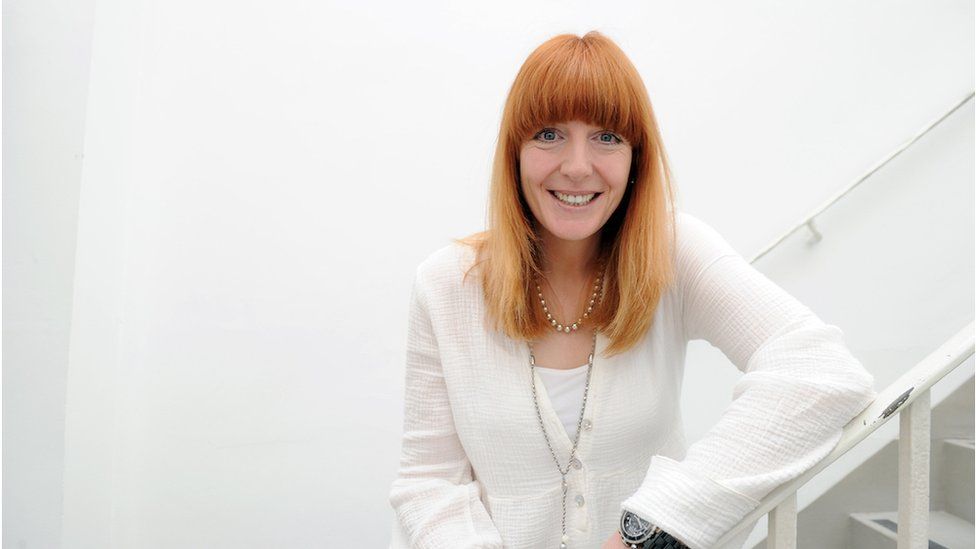
However, Fielding said she bore no ill will towards the programme’s formidable editor.
“She made me stronger in the long run,” she told Hassan.
“When I think about it… the amount of awful people within the television industry, I always thank Biddy because if it wasn’t for her, there’s no way I would have stood up and basically told them where to go.
“She did that. She gave me the balls to do that. And so I thank her for that. There’s no bitterness there whatsoever.”
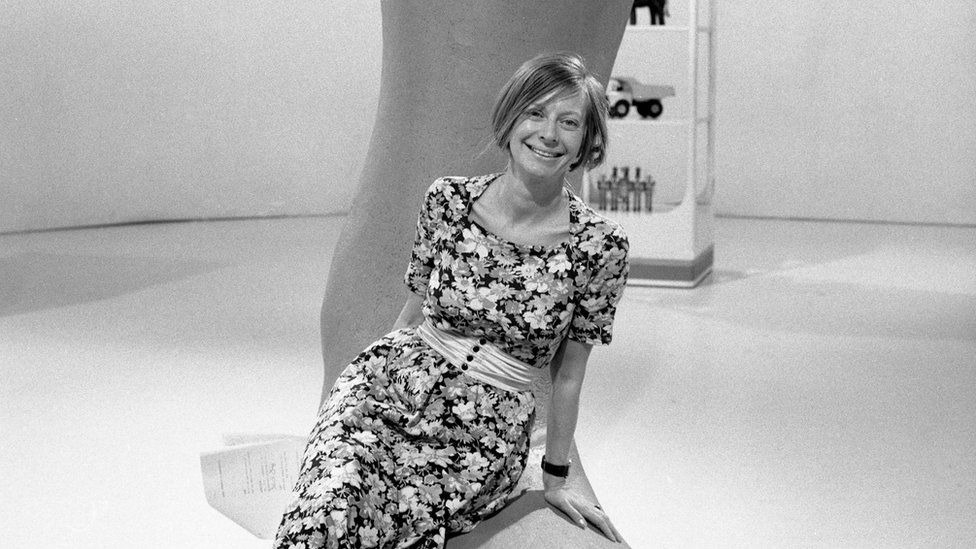
Fielding even added that Baxter had been right to ask her to reveal her skin condition on the programme.
“We had sackfuls of letters coming in from children with skin disorders saying that they feel a little bit more confident. That’s how savvy she was. So she was so right on so many things.”
BBC News tried to reach Baxter, who is 90, for comment but has yet to receive a response.
In an interview with The Independent back in 2009, Baxter was asked if she was a dictator at work.
She threw the question back to the interviewer: “Is your editor a dictatorial? It’s difficult to be an editor and not edit.”
In the same article, she pointed out: “I had only three secretaries in 23 years, so I must have had more bearable moments.”

